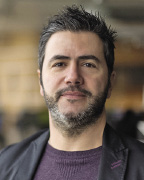For years, new office or residential developments have been luring customers with amenities: gyms, cafes, luxury finishes.
But today, a building's long-term success (and short-term lease-up) can often hinge more on what's outside of the project's four walls.
For one thing, working or living in a building that is near transit can be as important as having any other amenity today, especially for Millennials, a generation that is increasingly eschewing owning a car. Developers are realizing this trend, and even making transit a central aspect of their project - or their marketing campaign. For example, New Balance is building - and footing the bill! - for a commuter rail station at their new $500 million Brighton headquarters called Boston Landing. The 500-person company recognized the need to get their existing and future employees easily to and from work at a site that is difficult due to the typically congested Massachusetts Turnpike. Similarly, the new Assembly Sq. mixed-use development in Somerville just got its own MBTA station on the Orange Line to accommodate and drive interest to the highly anticipated office, retail and entertainment location, which includes things like a Legoland Discovery Center and a J. Crew outlet.
Further, associating a project with cool things happening around it can be as important as whether it is transit-oriented. For example, 101 Seaport in Boston, a 17-story building that Skanska is developing, is poised to be the home of PricewaterhouseCoopers LLP (PwC) and can proclaim that it is rising in one of the city's hottest locations. The same is true for Boston's Seaport Sq., a 23-acre area that will be transformed from mostly parking lots into a vibrant, mixed-use neighborhood consisting of office space, apartments, condos, retail, hotels and more. In Boston's Fenway district, Steve Samuels's projects are all about the energy of the neighborhood and being near the ballpark. It is no longer enough to market the amenities inside a building. What's on the outside and the surrounding neighborhood matter, too.
Rodrigo Lopez, chief creative officer, Neoscape, Boston, Mass.
Tags:









